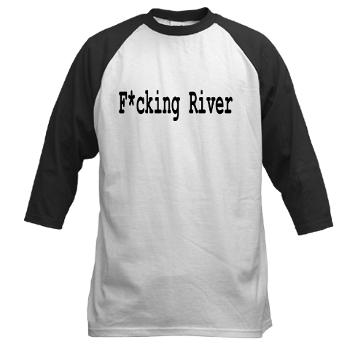Wednesday, December 28, 2005
If you didn't read part 1, go read it first.
If this thread of discussion interests you, I cross-posted in the Chicago Poker Club forum and got some interesting responses as well.
First of all, thanks for all of your responses. In contrast to how I usually do things (post a plea for advice, then mull it over after everyone has responded), this time I did all of my mulling over prior to posting, came to a conclusion, and then waited to see how my conclusion compared with everybody else's.
I left out a lot of the "background information" in the KK hand because I didn't want to cloud any potential responses with my own perceptions of the information. Here's the info that was missing (some relevant, some not - but again, I don't want to cloud the data by filtering it through what I personally find relevant or not).
- Short stacked tilting guy: this poor guy had been moved from a broken table with 25 bucks or so about an hour prior to this hand. He rebought up to 200 immediately, and sat tight for a little while. Then, within 4 or 5 orbits, he literally rebought 4 times, felting himself every time. He had nearly a thousand dollars sunk into the game in just the hour I played with him. His losses were mostly his own doing and not suckouts - pushing all in with middle-pair-weak kicker, calling bets to the river with top pair despite a 4-card flush onboard (and losing to the flush), that sort of thing. He was your typical "any ace or face" guy who didn't understand the importance of kickers.
- My big-stacked opponent: I'd been playing with him for 5 hours. He was short-stacked for most of that 5 hours, and about an hour earlier, hit two big hands in multiway pots to grow his stack to 800. Those two hands were: 5-2 suited, where he pushed all in after the flop with bottom pair of 2's (he turned 2 pair), and J-9 offsuit where he again pushed all in after the flop with top pair 9's and turned two pair.
- More on my big-stacked opponent: he wasn't drinking (they don't serve alcoholic beverages on Christmas), but he did leave the table about once an hour to go outside and smoke pot.
- Even more on the big stack: I distinctly remember 5 instances of the following scenario (though there were a few more - I just don't want to quantify them because I don't remember them precisely). Once his stack started to grow, he became a big fan of the all in move. Here are the 5 hands I specifically remember him doing it with (he always showed, though got no callers): AK twice, AQ, JJ, and TT. Upon showing his uncalled hand, every time he explained his overbet like this: "I don't want to see a flop with that! I'd rather just win a little pot than get sucked out on!"
- My image at the table: let's just say, the dealers were even making fun of me for the first 4 hours. I wasn't playing any hands (and my starting hand standards were VERY low by this point, and I still had nothing playable). The dealers started peeking at my hole cards after I folded, and the typical reaction was the lips left, or the sympathetic nod. Around 1am, I went on a mini-rush. AK hit a K and held up. AT of hearts hit the nut flush in a 5-way pot. JTs flopped the nut straight and it held up. That's where my 800 came from: a 40-minute stretch at the end of the night.
- At Trump, on the 200max NL tables, you pay $7 per half hour in time (instead of a pot rake). So, I typically time my departures on the half hour. At 2am, I settled in for the "one more dealer" routine. I would leave after the dealer change at 2:30am. The dealer was my friend Jose, so - even better. 20 minutes passed without incident, until I looked down to find KK.
I looked a Big-stack and counted his columns of red. I estimated that he had me covered. (Ends up, I had him covered by $40 or so). I remember sighing audibly as I recalled each of his previous all-in's. I compared my KK to each of those hands. I'm a huge favorite. Then I thought, could he possibly have Aces? I decided not. He made this particular bet the same exact way he'd pushed all of his other all-in's. His physical presence looked no different (ie. he didn't look nervous, he didn't look particularly strong or weak, etc - though that was probably due to all of the marijuana).
I called. He had AA. I lost all but $40 of my stack. Merry Christmas to you, Big-stack! I tipped Jose my last $40 and wished the table a happy holiday as I left, grinning that "oh well, what can you do" grin of defeat as I tried not to puke on my way to the bathroom.
As I made the hour-long drive home from Trump, this is what went through my mind (you = me... yes, I have conversations with myself):
- You're so weak - can't even lay down KK.
- Who cares if you could have won that pot? You also could have left with 800 bucks in your pocket. That pays off a lot of Xmas gifts.
- Why didn't you just laugh at the guy, fold face up, and go home??!?!?!??!
- You should quit playing poker right now. You obviously suck.
Later that night (I didn't sleep a whole lot), and the next day, I thought a lot about that hand. Upon emotionally detaching from it, I came to some conclusions. Here are some of my trains of thought (hop on, or call me crazy - one of the wonderful things about poker is that there is no one right answer to any question).
- Based on my opponent's previous betting patterns, a call in this situation "made sense" (ie. it fit the pattern; I was likely ahead in the hand).
- One highlight of my thought process during the hand was that I did not think of my stack in terms of "dollars" (ie. I did not think of my stack as red chips to pay of Christmas presents with - that came after the fact). My belief is that if you cling to chips like they're money, there's no way you can make good decisions in poker. There has to be a detachment there. I thought I would have difficulty with that when I switched from limit to NL, and this hand went far to show me that in fact, I don't have that problem.
- I don't think it is good poker to say that I would play that hand differently, depending on the size of my stack. If I would make that call all day long with $200 in front of me, but not with $800 in front of me, something is wrong. The size of my stack shouldn't have anything to do with my decision. This was a cash game, not a tournament. My decision should be based on my read on my opponent (previous betting patterns, tells, etc), and the probability of my hand winning versus whatever range of hands I've put my opponent on.
- Folding KK here solely on the basis of "he might have Aces" is the equivalent of fearing monsters under the bed. Sure, he might have Aces. But did I have any information to make me think he had Aces? On the contrary, I had quite a bit of information supporting the theory that he did NOT have Aces.
- Statistically, I knew from figuring this out previously that I will run into AA when I have KK once in every 24 or so times. I'll see KK 23 times with no AA in the field for every one time I hit the cooler. I like those odds.
- Just for fun - some more stats: If I see KK once in every 221 hands or so that I play, statistically speaking, somewhere around every 5,300 hands I'll run into KK vs AA (personally - it's about once every 524 hands you'll see it happen to someone else at a 10-handed table).
- Even if both of my opponents had an Ace in their hands, I'm still a nearly 70% favorite to win. For the sake of easy math, let's say I'm a 2:1 favorite. I like those odds too. For every time I lose 800 there, I win 1600. That's +EV.
Do you think your opponent has Aces? Any other hand is a +EV call.
Now - I could have taken the conservative route here, and folded the hand knowing that mathematically I had an edge if my read was correct. I could have opted to conserve my large stack and leave with a pocket full of money. There's no shame in that, and several comments I've received on this hand have been to that effect. Why risk the $800? Who cares if you might have won? Fold the possibly winning hand and hang onto your chips.
That's a very valid point, and it brought me to another train of thought: do I want to be that player?
I believe in the math behind poker, very devoutly. I also believe that part of the skill in poker is in reading situations: analyzing betting patterns, putting the story of each hand together to see if it all makes sense, recognizing tendencies or tells in opponents, etc. All of the professional poker players whose books I read, and whose performances I watch on television, preach these as the foundations of a solid game. Upon moving beyond the point where my poker game revolved around my starting hand selection, these are the skills I am working to hone.
Part of honing those skills is trusting my reads and acting on them. My read was that my opponent had a pair ten or higher, or a big Ace. There's no reason to conserve chips; this is not a tournament. In the long run (and I do believe in the long run), I want to make +EV decisions with the information I've got. Period.
I don't want to be the player folding in what I've determined to be a long-run +EV situation for fear of losing money.
My final conclusion: I'd make that same call again. It was an unfortunately unlucky one this time, but over the long run, that call will make me money.
The only thing I would do differently: before calling, I wish I would have engaged the big stack in conversation, as a final attempt to get some tidbit of a tell or information out of him - to see if he has Aces.
If I decide that my read on the guy is that he has Aces, I'm laying down the KK. It crossed my mind, while sitting there thinking about whether to call or fold. I wish I would have asked the guy something like, "Do you have Aces?" or "Do you want me to call?" Sure, by asking if he has Aces, I'm basically telling him that I don't - but what does it matter? He's already all in, and there's nobody left to act. Even better - I wish I'd have flipped my KK face up before calling and asked him if he wanted me to call. (Learned that trick from Maigrey). I'm pretty sure I'd have known more clearly what his hand was if I'd have done that.
So, my $800 lesson in this hand: get as much information as possible from your opponent before making a call. That little trick might have saved my stack. However, if my read is that the guy does not have Aces, I'm making that call all day long and twice on Sundays.










I like the call.
These are the type of decisions all poker players must make. I like how you weren't afraid to lose, but made the call based on previous history and the likely outcome.
Results be damned. Granted, that's easier said than done.
I've posted about this hand in my blog.
Mr. Sub - I somehow missed ya on my blogroll - you're linked now. Your post is great too; it would definitely be a mistake to ignore the possibility of my opponent holding the worst-case-scenario hand when calculating my probability of winning.
I think I still would have made the call (and still would have lost! Damn damn damn!) LOL :)
three all-in callers, one had me covered but went all-in in late postion, i had KK, the first and second all-in's were short stacked.
i folded KK face down.
the bottom line is that my hand would have held up for a massive, massive pot. as it was, AK took it down when a KING hit the turn. the other hands were KT and 99. i felt like (and still feel like) a huge pussy for folding it and i said i'd never fold KK like that again unless some circumstance led me to believe that my opponent definitely had AA.
it was a good call. i like your logic. i applaud your not being a huge pussy like me. gg.
still.. awesome post.
Your thinking was spot on. The next 23 times, you get paid.
I know I base some marginal calls/raises in PLO8 on the opponent's stack size.
Excellent post Shelly, sorry the results sucked.
A big tipoff to me that someone will call a severely over-sized bet is if they(a TIGHT player) hasn't played hardly any hands and then all of a sudden raises a tilting limper. All that waiting & folding makes KK extra tough to get away from, especially if the action comes from a toker who has been actioning up.
The lesson would be to play some BS hands occaisionally to keep bald statitics from revealing too much of one's play.
I personally do not fold KK except in a situation where AA is obvious, I.E. I raise, he-re-raises, I re-re-raise and he pushes.. I might consider folding there. However you had no way to get that read since he pushed right in.
If you like your post flop game alot I could see folding just for the hell of it. I mean why invest the chips without the information a flop gives you.. there is always another time in a cash game and you never "have" to push or call..
It really just comes down to style issues to me.. I do not see either play as bad. If you have no problem calling pre-flop while your probably ahead then I would do it. If you have no problem waiting for another hand and acting with more information and outplaying your opponent on the flop then do that.
Certainly you did nothing bad the way you played your hand.
Now, back on the horse.